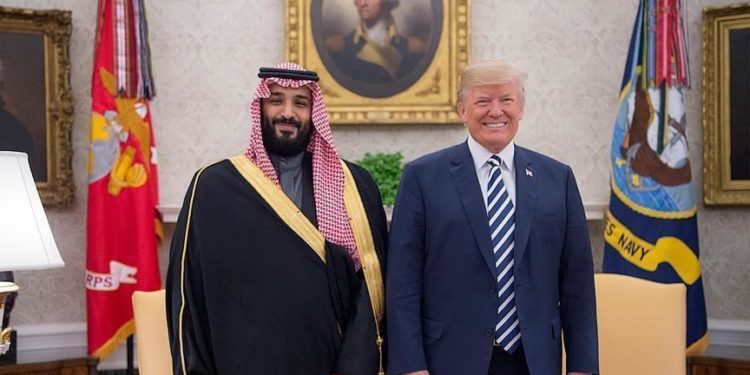G-20 leaders, don’t forget the women’s rights advocates rotting in Saudi prisons

For nearly two years, Saudi Crown Prince Mohammed bin Salman has been attempting to regain his place as an emerging global leader despite his implication in war crimes in Yemen and his brutal repression of domestic dissent. In November, if Saudi Arabia succeeds in playing host to presidents and prime ministers at the annual Group of 20 summit meeting, he arguably will have done it.
Whether in person or virtually, President Trump and the leaders of Britain, France, Germany, Canada, Italy, India and other major democracies, along with Russia, China and Turkey, are due to honor MBS, as he is known, and his father, King Salman, the titular head of the regime, by joining the Riyadh summit.
The question they all should be asked between now and then is whether they will bestow that redemption while Loujain al-Hathloul continues to rot in the notorious al-Hair prison, 25 miles from the capital.
Hathloul, 31, is the best known of the at least 28 women’s rights advocates who have been jailed in Saudi Arabia since 2018. A number of them have been viciously tortured; none has been convicted of an offense. MBS’s bet is that his crimes against them, and their continuing suffering, will be ignored for the sake of an elite but all-but-meaningless confab; the G-20, formed at the time of the 2008 financial crisis, has accomplished nothing of import in the past decade.
That can’t be said of Hathloul, who while still in her early 20s became a leader of protests by Saudi women seeking the right to drive and an end to the system of male guardianship. Mohammed bin Salman, seeking global prestige and foreign investment, elected to lift the driving ban in June 2018 — but not before crushing those who had demanded the reform.
Hathloul, living in exile in the United Arab Emirates, was abducted from there in March 2018 and forcibly transported to the kingdom. She was briefly released, but on May 15, 2018, she and a number of other women were seized and taken to secret detention facilities, where they were held incommunicado for months and, according to their later accounts, badly tortured.
Hathloul is still in prison in part because she bravely told her family and the official Saudi Human Rights Commission what happened: She was stripped, sexually abused, beaten, given electric shocks and waterboarded. Her torture was overseen by Saud al-Qahtani, a top aide to MBS, who threatened to personally rape and kill her.
In all, 14 women’s rights activists were arrested in 2018, and 14 more the following year, according to Alqst, a Saudi human rights group. But their cases were overshadowed by another MBS-ordered operation overseen by Qahtani: the murder and dismemberment of exiled journalist Jamal Khashoggi inside the Saudi Consulate in Istanbul in October 2018.
The global reaction to the Khashoggi murder shattered MBS’s reputation. But the experience did not change him. He has continued to persecute any Saudi, at home or abroad, who criticizes his regime. He rejected demands, including from the Trump administration, that he purge Qahtani.
Instead of justice, he has offered fig leaves: Last Monday, a court announced that eight members of the 15-member team sent to kill Khashoggi had been given prison sentences ranging from seven to 20 years. The same day, King Salman placed phone calls to Russia’s Vladimir Putin and France’s Emmanuel Macron to discuss arrangements for the G-20 summit. On Wednesday, he called Xi Jinping of China, Narendra Modi of India and Angela Merkel of Germany.
In the cases of the women, MBS has conceded even less. In early 2019, eight of those arrested in 2018 were released to home detention, and they and four others were put on trial. The charges against them were ludicrous: For example, Hathloul (who was not released) was said to have committed the offense of providing information to human rights groups and the European Union. Maybe that explains why the trials soon went dormant. There have been no hearings in months, and none are scheduled.
A year ago, Hathloul’s family said she had been offered her freedom — provided she videotape a statement saying she had not been tortured. She refused, and so she remains in a cell at al-Hair. For three months this summer, she was again incommunicado. Finally, on Aug. 31, her parents were allowed to see her. They found her weak from a hunger strike.
Hathloul, and the regime, know that her death might finally awaken the consciences of the G-20 leaders, and spoil the summit. It shouldn’t take that. Macron, Merkel, Boris Johnson, Justin Trudeau and others who don’t share Trump’s love for dictators could accomplish far more than the summit will by setting a simple condition for their attendance: the freedom of Loujain al-Hathloul and her fellow women activists.





